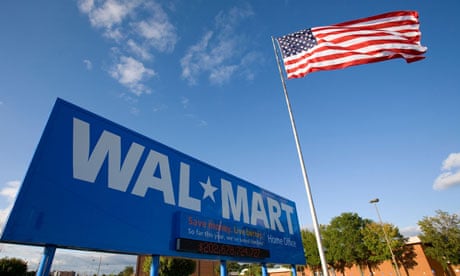Walmart, the world's biggest retailer, has gained its first foothold in Africa despite fierce opposition from trade unions.
South Africa's competition tribunal approved the multinational corporation's $2.4bn (£1.5bn) bid for Massmart, which has 288 stores in South Africa and a dozen other African countries, without conditions that could have jeopardised the deal. The move clears the way for Walmart in a fourth continent, having already aggressively swept through America, Asia and Europe.
Supporters of the deal saw it as a vote of confidence in Africa's economic growth and proof that South Africa is "open for business". But the country's powerful trade unions condemned it as likely to drive down wages and cost jobs, warning that they could respond with demonstrations, strike action and "the mother of all boycotts".
The deal has been seen as a test case for foreign investment in South Africa, which is home to the continent's deepest capital markets but where unions also hold huge political influence.
Walmart has made inroads into Brazil, China and Mexico but faced unusually strong resistance to its bid for a 51% stake in Massmart, a discount retailer that sells everything from alcohol to televisions.
The competition tribunal said that it had approved the deal, with the stipulation that Walmart must not cut jobs for two years and must work to develop local suppliers. Massmart must also "give preference" to re-employing 500 workers fired last year.
"The merging parties contend that the merger will indeed be good for competition by bringing lower prices and additional choice to South African consumers," the tribunal said. "We accept that this is a likely outcome of the merger based on Walmart's history in bringing about lower prices.
"However, the extent of this consumer benefit is by no means clear – Walmart itself has not been able to put a number to this claim, only that it is likely."
Three government departments and the unions had lined up against the deal, asking the tribunal to impose targets for local procurement and a freeze on job cuts. But the Arkansas-based retail group, which owns Britain's Asda supermarkets, had warned that it might walk away from the negotiations.
The government and unions are concerned about Walmart's global supply network which, they argue, could lead to a flood of cheap imports, sparking job losses and squeezing local suppliers. Unemployment in South Africa, one of the world's most unequal societies, rose to 25% in the first quarter this year.
Patrick Craven, spokesman for the Congress of South African Trade Unions, said: "Overall we think it's a victory for Walmart and we shall be continuing our campaign against the takeover of the Massmart stores. We believe all the reasons for that campaign are still valid."
He added: "Trade unions all around the world have been campaigning against Walmart. Walmart are a notoriously bad employer. Even in America there are campaigns against it in New York and Washington. They pay their workers low wages, they ban trade unions wherever they can get away with it.
"At the very time we're trying to create jobs in this country on a massive scale, we're going to see jobs disappearing as a result of this Walmart takeover."
He warned that pickets, demonstrations, a boycott of Massmart stores and strike action were all options that would be considered by the union body, which is aligned to the governing African National Congress.
But Tim Harris, shadow trade and industry minister for the opposition Democratic Alliance, argued that Walmart would "promote much-needed competition in the retail sector – to the benefit of all South Africans experiencing the rising price of their basic necessities."
He added: "The approval of the deal also sends the signal that South Africa is open for business, despite the protectionist instincts of certain economic ministers. The DA believes that this deal will help to position South Africa as the foreign investment gateway into Africa - to the benefit of economic growth and job creation locally."
Speaking from Arkansas, Grant Pattison, chief executive of Massmart, told South Africa's eNews television: "We're very pleased and we think the ruling gives something to everyone and certainly should give confidence to international investors."

Comments (…)
Sign in or create your Guardian account to join the discussion